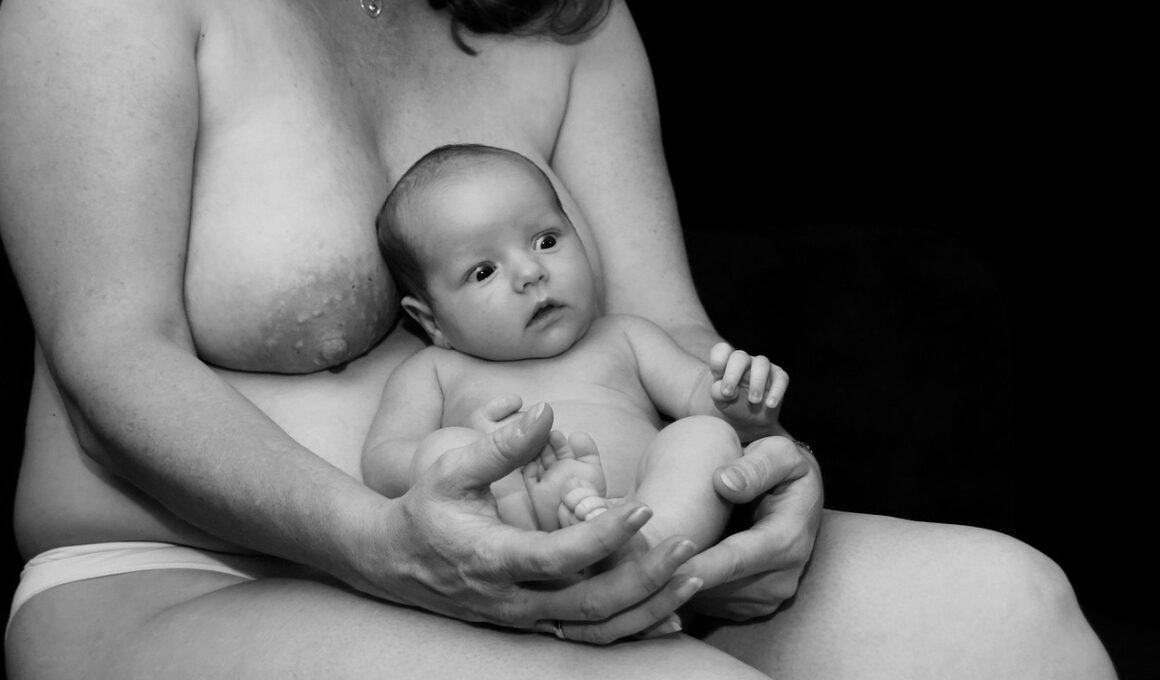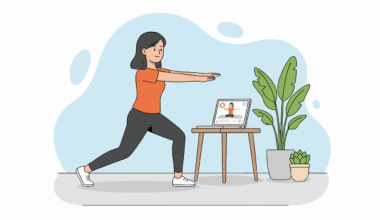Balancing Baby Care and Group Exercise Sessions
Postpartum fitness is essential for new mothers aiming to regain strength, posture, and overall body wellness after childbirth. One way to achieve this is by participating in group exercise classes designed specifically for postpartum women. Such classes provide a supportive environment where mothers can interact and share experiences while working out. These group sessions not only focus on physical recovery but also emphasize community building. The social aspect helps combat isolation and creates friendships based on shared experiences of motherhood. The motivation derived from being in a group can help mothers push through the fatigue that often accompanies early parenthood. Moreover, classes are often led by trained professionals who understand the challenges faced by postpartum women. They can provide personalized guidance tailored to each mother’s specific recovery needs, promoting safe and effective exercises. These classes may include activities like yoga, Pilates, or aerobic workouts, each designed to cater to varying fitness levels. Access to reliable information about the right exercises is critical. New parents can seek out local resources to find suitable classes in their area.
Ultimately, group fitness classes are an opportunity for mothers to reconnect with their bodies while respecting their postpartum recovery paths. For many women, finding time and motivation to exercise can be daunting with a newborn at home. Group classes ameliorate this barrier by offering scheduled times and collective encouragement. Knowing that other mothers are sharing the same struggles can foster accountability and commitment toward health goals. Classes are also designed to include babies, allowing mothers to attend without needing childcare. Engaging in exercises with their babies creates a joyful experience and enhances bonding. The classes often incorporate playful elements that allow mothers to include their little ones, focusing on fun rather than just fitness. Many classes may also offer post-class discussions, allowing participants to share tips about baby care and their fitness journey. This helps establish a deeper connection beyond workouts. Finding the right class is crucial, and mothers should consider their interests, fitness background, and current postpartum needs when selecting one. They might reach out to local fitness studios or community centers for recommendations.
Advantages of Group Support
Another significant advantage of postpartum group classes is the accessibility of information and support they provide. New mothers can benefit from sharing insights about baby care and fitness regimens. Group settings foster an environment conducive to discussion and the exchange of tips. This sharing is invaluable, as it reassures mothers that their concerns and experiences are shared by others. Emotional support is fundamental during the postpartum period, and connecting with other mothers can ease feelings of isolation and anxiety. Instructors often emphasize mental wellness as part of recovery, helping everyone understand the importance of mental health alongside physical activity. Engaging with others who understand the daily challenges can create a motivational cycle, inspiring mothers to attend classes regularly. The camaraderie developed in these settings can lead to long-lasting relationships beyond the fitness class. These connections can help in creating a support network, which is beneficial for mothers raising young children. Groups may also organize activities outside regular classes, strengthening the community and mutual support as they navigate motherhood together.
Furthermore, tailoring workouts to accommodate varying levels of postpartum recovery is essential. Women undergo different childbirth experiences, making it necessary for fitness instructors to adapt sessions appropriately. Classes should consider factors such as the mode of delivery, time since childbirth, and individual fitness levels. Discussing these factors with a qualified instructor ensures that all participants are progressing safely. Often, modifications are made for certain exercises to accommodate new mothers’ needs while ensuring safety practices are followed. Over time, mothers can gradually increase their intensity and adapt their routines to challenge the body effectively. It’s crucial for mothers to listen to their bodies, celebrating small milestones of recovery rather than pushing through discomfort. Recovery takes time, and it can be disheartening to not see immediate results. Therefore, surrounding oneself with a supportive group can help maintain motivation. When mothers see their peers making progress, it encourages them to keep moving forward. To maximize results, consistency in attending classes becomes essential. Regular attendance fosters the habit of exercise and ensures a successful fitness journey.
Choosing the Right Group Class
When seeking the right postpartum fitness class, mothers should consider specific factors to ensure it meets their needs. Firstly, examining the qualifications and experiences of the instructors is crucial. Instructors should have experience in postpartum recovery techniques and an understanding of the unique challenges faced by new mothers. Secondly, mothers should assess the class atmosphere. A welcoming environment where mothers can openly express themselves is vital. Checking reviews or testimonials can provide insights into other participants’ experiences. Understanding the class schedule is also important to accommodate busy new parents needing flexibility. A diverse class structure that allows for different levels and various workouts can encourage sustained interest. Additionally, mothers may want to think about the class size; smaller groups may facilitate more individualized attention. Finally, it is essential to ensure that classes accommodate babies, as having them nearby can ease mothers’ anxieties. Many successful group classes include options for baby engagement, making the experience enjoyable for both mothers and infants.
Attending postpartum fitness classes provides numerous physical benefits along with the emotional and social advantages mentioned. Regular physical activity helps mothers regain strength and aids overall recovery from the strains of childbirth. Exercise releases endorphins, often referred to as “feel-good hormones,” which promote positivity and improved mood. Whether through cardio, strength training, or flexibility exercises, postpartum classes are designed to aid in recovery, improve core strength, and enhance overall health. Mothers participating in these classes often experience weight management benefits as well. Ultimately, physical activity can improve energy levels, crucial for navigating the demands of parenthood. The combined impact of exercise and support helps reinforce healthy behaviors, encouraging mothers to engage in regular activity. Fostering a mindset focused on wellness can also positively influence family habits, promoting healthy lifestyles for mothers and children. As they become more active, mothers often inspire their families to partake in family-friendly activities, creating lasting habits. Moreover, the skills learned in classes can be incorporated into home workouts, allowing mothers to maintain their exercise regimens even when they cannot attend a group session.
In conclusion, postpartum fitness group classes play a vital role in helping mothers rebalance their lives after childbirth both physically and emotionally. They create a supportive social environment filled with understanding and empathy. By participating in these group settings, mothers can receive vital support in numerous aspects—parenting, fitness, and emotional health. These classes lead to improved individual well-being while fostering community connections. For mothers navigating the complexities of early motherhood, group support is a bastion of encouragement and motivation. Finding a suitable class and staying committed to participation helps in substantial recovery and boosts confidence in their abilities as new parents. Social interactions create a safe space where mothers can express their concerns, celebrate milestones, and bond over shared experiences. Each class forms a stepping stone toward establishing a new routine while offering postpartum support. Consequently, mothers can start their fitness journey while ensuring their baby’s needs are also met, aligning with the idea of balancing care for the baby and themselves. In a world of baby care, postpartum classes can achieve this balance harmoniously.
Ultimately, balancing baby care with fitness should be an enjoyable journey. By engaging with others in a group setting, mothers are more likely to commit to their health, supporting their families in the long run. Recovery shouldn’t be a solitary experience; it can be enriched through the camaraderie of shared goals and aspirations. Finding local community centers, gyms, or fitness studios that offer such classes can enhance the postpartum journey, transforming it into an empowering phase of life. With the right approach, mothers can create positive changes in their lives while contributing significantly to their babies’ early stages. Embracing these classes is a step toward self-care and positive wellness, reinforcing that taking care of oneself is vital to caring for others. In summary, participating in postpartum fitness classes can foster confidence, community support, and physical recovery, all while embracing the joys of motherhood. New mothers are encouraged to seek a class that resonates with them and embrace the experience with an open heart.


